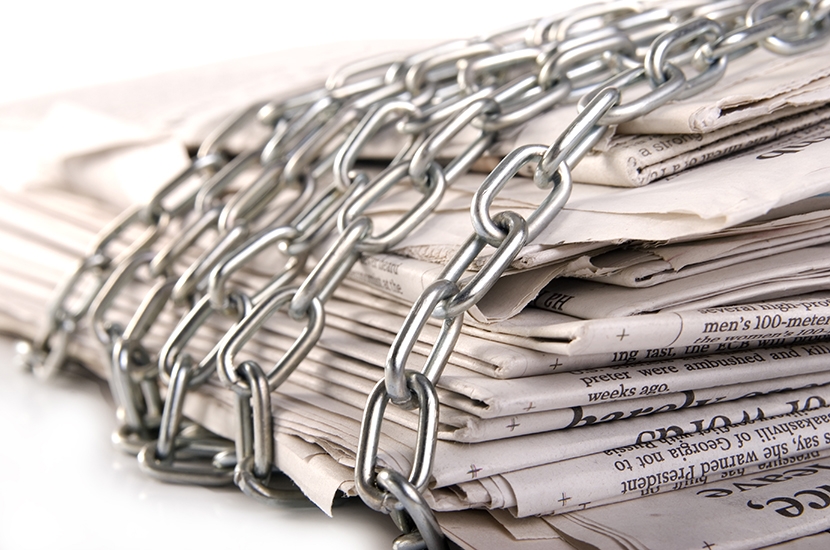‘Whatever you do, don’t call them snowflakes,’ Caroline said the last time I spoke to Oxford students. ‘That’s not a grown-up way of conducting a political debate. It’s like calling you a gammon.’
She’s right, of course, but by God they make it hard. This week we learned that the Oxford University Students’ Union is planning to elect a ‘consultancy’ of ‘sensitivity readers’ to scrutinize articles in student newspapers before publication to make sure they won’t offend anyone. If the union has its way, the editor of Cherwell, one of Oxford’s oldest student publications, won’t have final say over what’s published in the weekly paper. Once he’s signed off on something, he’ll have to forward it to this conclave of moral guardians, much as theater producers once had to send new plays to be vetted by the Lord Chamberlain. (Incidentally, my use of ‘he’ in that sentence probably wouldn’t pass muster with these student censors.)
I dread to think what the reaction of this snow patrol would be to some of the student journalism I produced. I edited a satirical magazine called Tributary, the nearest thing Oxford had to Private Eye. I remember when Boris started going out with a student at Trinity College called Allegra Mostyn-Owen. Beautiful, clever and posh, she was the Zuleika Dobson of her year — and later Boris’s first wife. I stuck a picture of her on page three and called her ‘Allegra Austin-Rover, a smooth little runner from Trinity’. I don’t suppose that would get past the sensitivity readers.
The years 1983-86 weren’t a golden age for student journalism, but it’s remarkable how many of my contemporaries went on to successful careers as writers or journalists, at least for a time. Apart from Boris, there was Michael Gove, Rachel Johnson, Niall Ferguson, Andrew Sullivan, Hugh Fearnley-Whittingstall, Aidan Hartley, James Delingpole, Robert Twigger, Lloyd Evans and Allegra herself. We were nearly all, as I remember, fantastically rude about everybody, including each other. Our ‘sensitivity’ extended no further than working out what was likely to cause someone maximum embarrassment and then repeating it at every opportunity. (My nickname in Cherwell involved a particularly nasty venereal disease.) It was absolutely brutal — and so the perfect training for Fleet Street life.
The high point of my student journalism career was discovering in 1985 that a South Africa debate at the Oxford Union was being subsidized by a well-known diamond company. Quite a big deal because Chief Buthelezi, cabinet minister Allan Hendrickse and the South African ambassador Denis Worrall were all due to speak. After I asked the Union for a comment, one of its elected officers approached me and said they’d give me £200 to drop the story. It’s the only time in my 36 years as a journalist that I’ve been offered a bribe. I told him to get knotted, ran the story and the debate ended up being canceled, although that probably would have happened anyway as anti-apartheid activists were planning a protest.
It’s hard to predict how a sensitivity reader would have responded if the Union hack, having been rebuffed by me, had taken it up with them. Some students were undoubtedly ‘triggered’ by my scoop, but probably in a way a morality cop would approve of. Nevertheless, there’s a chance the aspiring politician could have spun it in a way that elicited the censor’s sympathy — or bribed them to quash the story.
And that’s one of my concerns about this initiative. It will create a mechanism that unscrupulous people can use to suppress stories for self-interested reasons. It’s the same argument I and many others made against the state regulation of the press in the aftermath of the Levinson inquiry. If journalists become accountable to elected officials, the rich and powerful will find a way to exploit that oversight to kill off embarrassing stories.
Not everyone will be convinced by this argument. People who disapprove of the sort of journalism I practice will think it would have been a good thing if my career had been nipped in the bud by a sensitivity reader in 1985. Auberon Waugh, having reviewed my sophomoric scribblings, advised me to become a dentist. But I like to think there’s still a place for waspish, opinionated journalists with a strong rebellious streak, an instinctive distrust of officialdom and a complete indifference to social approval. Unfortunately, they’re unlikely to learn their trade at Oxford these days.
This article was originally published in The Spectator’s UK magazine. Subscribe to the World edition here.


















